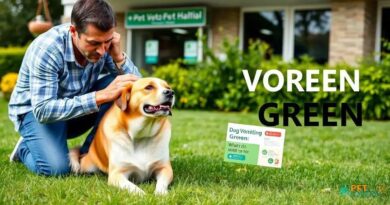What is Urban Dogs
What is Urban Dogs?
The term Urban Dogs refers to canines that are adapted to living in urban environments, where space is often limited and the pace of life is fast. These dogs are typically bred or trained to thrive in city settings, which can include navigating busy streets, interacting with diverse populations, and adjusting to various noises and stimuli that are common in metropolitan areas. Understanding the unique characteristics and needs of Urban Dogs is essential for both pet owners and urban planners.
Characteristics of Urban Dogs
Urban Dogs often exhibit specific traits that make them well-suited for city life. They tend to be smaller breeds, which are easier to manage in confined spaces such as apartments or small homes. Breeds like French Bulldogs, Pugs, and Dachshunds are popular among city dwellers. Additionally, these dogs usually require less exercise than their larger counterparts, making them ideal for owners who may not have access to large outdoor spaces. Their adaptability to different environments is a key factor in their classification as Urban Dogs.
Socialization and Interaction
One of the defining features of Urban Dogs is their socialization skills. Living in a bustling city exposes them to a variety of people, other pets, and different situations, which can enhance their social behavior. Proper socialization from a young age is crucial for these dogs to develop confidence and reduce anxiety in crowded environments. Regular visits to dog parks, participation in dog-friendly events, and interactions with other dogs can help Urban Dogs become well-adjusted and friendly companions.
Health Considerations for Urban Dogs
Urban Dogs may face unique health challenges due to their environment. The prevalence of pollution, allergens, and limited access to green spaces can impact their respiratory health and overall well-being. Additionally, the risk of obesity can be higher for dogs that do not get enough exercise due to the constraints of urban living. Owners should prioritize regular vet check-ups, a balanced diet, and creative ways to ensure their dogs receive adequate physical activity, such as engaging in interactive play or utilizing doggy daycare services.
Training Urban Dogs
Training is essential for Urban Dogs to navigate their environments safely and effectively. Basic commands, leash training, and social etiquette are crucial skills that help these dogs thrive in urban settings. Positive reinforcement techniques are often recommended, as they encourage good behavior while building a strong bond between the dog and owner. Urban Dogs may also benefit from specialized training classes that focus on urban challenges, such as dealing with distractions and learning to remain calm in crowded areas.
Urban Dog-Friendly Activities
Engaging in urban dog-friendly activities can significantly enhance the quality of life for both the dog and the owner. Many cities offer dog parks, pet-friendly cafes, and organized events such as dog walks and charity runs. Exploring these options not only provides physical exercise but also fosters socialization opportunities for Urban Dogs. Owners should seek out local resources and communities that promote dog-friendly activities, ensuring their pets enjoy a fulfilling urban lifestyle.
Choosing the Right Breed for Urban Living
When considering adding a dog to an urban household, it is vital to choose a breed that aligns with the lifestyle and living conditions. Smaller breeds, as mentioned earlier, are often more suitable for apartment living. However, temperament and energy levels should also be considered. Breeds that are known for being calm and adaptable, such as Cavalier King Charles Spaniels or Shih Tzus, can be excellent choices for city dwellers. Researching breed characteristics and individual dog needs is essential for making an informed decision.
Urban Dog Ownership Responsibilities
Owning an Urban Dog comes with specific responsibilities that owners must be prepared to meet. This includes providing adequate exercise, socialization, and mental stimulation to prevent behavioral issues. Additionally, owners should be aware of local laws and regulations regarding pet ownership, such as leash laws and breed restrictions. Being a responsible Urban Dog owner also means ensuring that the dog is well-trained and well-behaved in public spaces, contributing to a positive image of dog ownership in urban communities.
The Future of Urban Dogs
As cities continue to grow and evolve, the concept of Urban Dogs will likely adapt as well. Urban planners and pet advocates are increasingly recognizing the importance of creating dog-friendly spaces, such as parks and walking paths, to accommodate the needs of Urban Dogs and their owners. This shift towards more inclusive urban environments will enhance the quality of life for both pets and people, fostering a harmonious coexistence in bustling city landscapes.



